Iran’s Revolutionary Guard General Killed In Syria - State Media
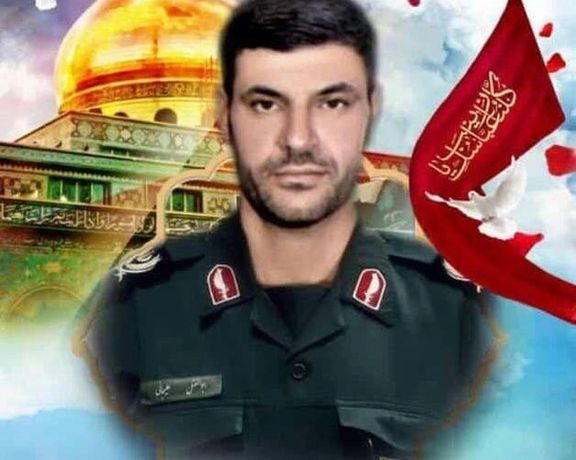
A senior member of Iran’s Revolutionary Guard’s Ground Force was killed in Syria in the early hours of Monday, according to Iranian state media.

A senior member of Iran’s Revolutionary Guard’s Ground Force was killed in Syria in the early hours of Monday, according to Iranian state media.
Iran’s state-run media claimed that General Abolfazl Alijani was killed as he was serving as a "military advisor" in the country, adding that he was from the central city of Esfahan (Isfahan).
It is noteworthy that the general was not a member of the extraterritorial Quds (Qods) Force but an IRGC Ground Force officer.
Calling him a ‘martyr,’ the state media said his body is to be transferred to Iran in the coming days for his funeral.
There have been recent Israeli strikes, but they do not align with the timing of his death as announced by the Iranian media. The latest such attack was on August 14, when a series of Israeli airstrikes hit Iranian targets close to Russia's main Syrian bases on the Mediterranean coast and areas near the ancestral home region of the Syrian president.
Iran has been deeply involved in the Syrian civil war for more than a decade, deploying tens of thousands of its own forces as well as hired Afghan, Iraqi and Pakistani Shiite fighters, who helped save Bashar al-Assad’s regime, with help from Russia.
However, since 2017 Iran has been trying to set up a presence on the Israeli border, possibly to create a new front to complement what the Lebanese Hezbollah has in southern Lebanon against Israel.
The Israeli air force has conducted hundreds of strikes against Iranian bases in Syria since 2017, targeting mostly weapons transfers and warehouses.
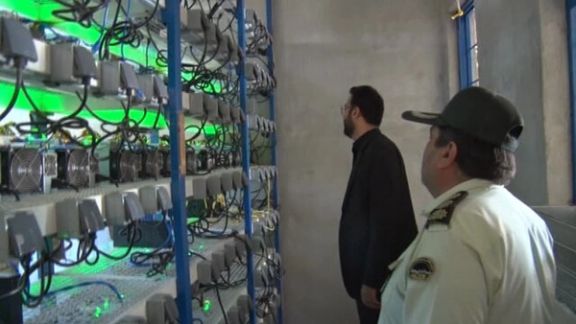
Iranian police have discovered and confiscated 9,404 illegal cryptocurrency mining devices in Tehran since the beginning of the Persian calendar year, which started on March 21.
Kambiz Nazerian, head of Tehran Electricity Distribution Company, said on Monday that the energy-guzzling devices were discovered by inspectors in different districts of the capital.
In recent years, Iranian authorities have regularly announced the discovery of illegal cryptocurrency mining machines in different parts of the country. Many of these operations were based in public locations such as schools and mosques that receive free or heavily-subsidized electricity.
Cryptocurrencies are created through a process known as mining, where powerful computers compete with each other to solve complex mathematical problems. The process is highly energy-intensive, often relying on electricity generated by fossil fuels, which are abundant in Iran.
Iran has a complex relationship with crypto-currencies, which have helped hide various kinds of illicit trades banned by US and other European sanctions.
However, many reports in Iranian media have indicated that large scale crypto mining has been taking place by influential or well-connected networks and some Chinese companies have also been present in Iran using cheap, subsidized electricity.
A 2021 study found that 4.5 percent of global Bitcoin mining – worth around $1 billion then – was in Iran, leading to pressure on electricity supply in peak times and to repeated government assurances that the sector would be better regulated.

Saeed Afkari, the brother of the executed Iranian wrestler Navid Afkari, says their jailed brother Vahid has been threatened with death in prison in Shiraz.
Saeed Afkari said on social media that the warden of Adel-Abad Prison, in southwestern province of Fars, wants to reinstall a surveillance camera in Vahid’s solitary confinement cell for his protection.
Saeed said the warden told him that he has information that “some people” want to take advantage of the lack of a camera inside his cell and kill him. He expressed grave concern for the life of his brother.
Earlier reports said that Vahid had broken the security camera inside his cell a few times, and will not allow the authorities to set up new cameras.
Vahid Afkari was sentenced to 54 years and 6 months in prison and 74 lashes and is held in solitary confinement.
Amnesty International said in June 2021 that Vahid and Habib, another brother who has since been freed, were being subjected to torture and other ill-treatment in Adel-Abad prison in Shiraz, and were denied access to adequate healthcare, fresh air, telephone calls and face to face family visits.
Navid Afkari was arrested along with his brothers Habib and Vahid during protests in Iran in 2018 and was executed despite international campaigns to save his life.
He initially received a death sentence for an “act of war against God” for his participation in protests, the authorities later charged him and his brothers with the murder of a government employee.
According to the Oslo-based Iran Human Rights in September 2021, Shahin Naseri, a prisoner who testified that Navid Afkari was tortured to confess to the killing, died in custody in Greater Tehran penitentiary “in suspicious circumstances”.
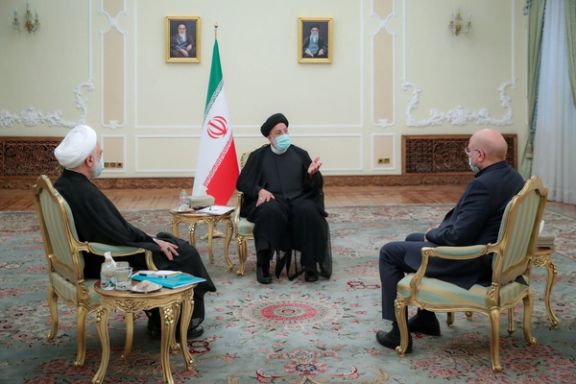
As desperate Iranians await a nuclear deal to see economic improvement, officials have begun telling the public that lifting US sanctions will not bring about a miracle.
While many Iranians including some lawmakers complain about growing poverty, officials such as IRGC Commander Hossein Salami insist that people's economic situation is satisfactory and "Iran can now send satellites to the space, crack atoms, use artificial intelligence and Quantum and Nano technologies and be a part of the digital age."
Meanwhile, information leaked from a meeting between chief nuclear negotiator Ali Bagheri and Iranian reporters indicate that Iran's oil revenue may soon be doubled if a nuclear deal is reached, and Tehran can find access to billions of dollars of its frozen assets in other countries.
Nonetheless, Iran's former nuclear chief Fereidoun Abbasi who is a member of parliament (Majles) says Iranians should not expect a positive impact on their livelihoods if a nuclear agreement is reached with the United States and sanctions lifted.
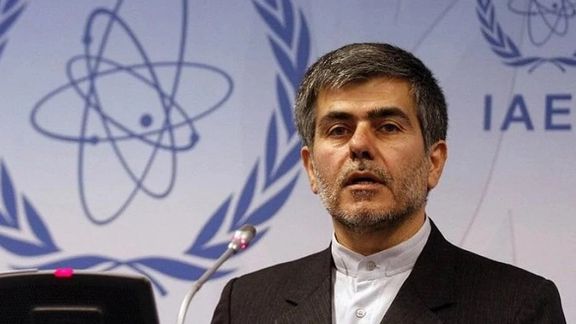
Probably based on insider information, Abbasi told Entekhab news website that the agreement with the United States does not include a clause about easing Iran's international banking operations. That probably is the reason why he thinks the agreement will not be followed by an economic breakthrough.
Earlier, former government Spokesman Ali Rabiei, and centrist commentator Saeed Leylaz had pointed out that financial corruption could still adversely affect Iran’s economy even after an agreement. Meanwhile, Iranian social media users speculate that Iran might spend the lion's share of any financial windfall on strengthening its militant proxy groups in the region.

Abbasi also noted that even with an agreement at hand, international companies may still avoid coming and investing in Iran fearing another US unilateral withdrawal from the deal.
On Sunday, hardline cleric Hossein Ebrahimi, a member of Tehran's notorious right wing clerical association told the press, "An agreement will not solve our problems. The people of Iran should be patient and help the government to solve the country's economic problems."
He added, "Although a large part of sanctions against Iran will be lifted as a result of the agreement, it does not mean that life will be a rose garden for Iranian people from the morning after. Certainly, many problems will be solved, but many challenges will also remain."
Ebrahimi particularly pointed out that prices which have skyrocketed are not going to come down because of the agreement. Another cleric had said earlier on Sunday that many things may become available in the market, but still at a high price.
Iran is facing a 54-percent annual inflation rate and food prices have risen by more than 100 in the past year.
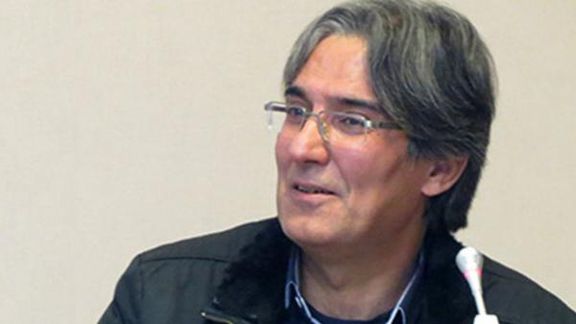
Meanwhile, in a report about the impact of an agreement on Iran's economy, Rouydad24 news website quoted economist Ehsan Soltani as saying that an agreement will not totally fix Iran's economy as there are many who benefit from the rising prices. He said those who benefit control the government and they are unlikely to allow the government to bring prices down.
Soltani said the Iranian government also benefits from the rise in prices as it collects inflation-induced tax from the lower and middle-classes.
Soltani also added that despite the probable real and psychological impact of an agreement, one should note that the main problem with the Iranian economy is financial corruption and the government inefficiency.
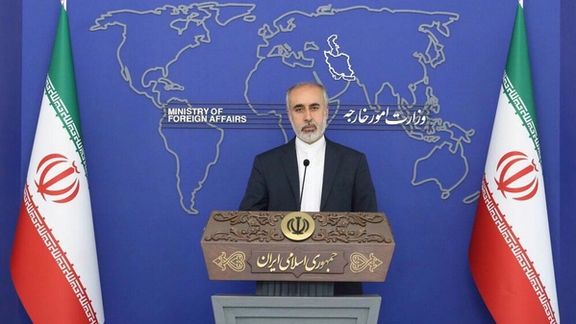
Iran’s foreign ministry has rejected rumors that the country has given up efforts to avenge IRGC commander Qasem Soleimani death for the revival of the 2015 nuclear deal.
During his weekly briefing on Monday, foreign ministry spokesman Nasser Kanaani said that the Islamic Republic’s position regarding the killing of Soleimani is clear, and that “the government and people of Iran will never forget the cowardly assassination of the great commander by the American government.”
Soleimani, commander of the Revolutionary Guards (IRGC) extra-territorial Quds Force, was killed in Baghdad along with nine others in 2020 by a drone strike ordered by then-President Donald Trump. The Qods Force under Soleimani became deeply involved in the conflicts in Syria and Iraq. Trump claimed that the general, who was Iran’s main operative in the Middle East, was killed because he was planning attacks on US troops.
In March, Iran said its judiciary would start the trial for all those involved in the killing of IRGC commander, including Trump, former secretary of state Mike Pompeo, and former CENTCOM chief Kenneth McKenzie. A lot of high-ranking Iranian military personnel and political figures, including the Supreme Leader, have promised revenge for the Soleimani's targeted killing.
The case for the revenge against the killers of Soleimani cannot be forgotten and it will not be amenable to compromise and reconciliation, Kanaani said, noting that the Islamic Republic will exhaust all of its capabilities “to bring the killers of the general to justice.” He added that Iran acts with seriousness in this regard and that the issue is not related to the nuclear negotiations.
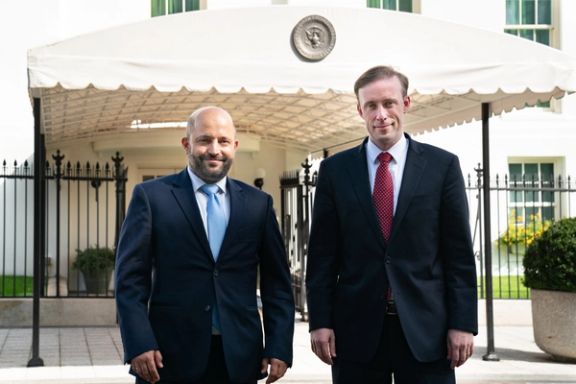
Israel plans to try until the very last moment to make the United States reject the nuclear deal, as Tehran claims progress has been made and claims it won important concessions.
Israeli National Security Adviser Eyal Hulata is expected to head to Washington this week for a series of meetings with US officials on Iran’s nuclear issue as part of the attempts to sway Washington to walk away from the revised accord just as Tehran hinted it may be willing to finalize the agreement.
A senior Israeli official told KAN news that the US has not made any final decision with respect to the deal, aimed at reviving the 2015 JCPOA signed with Russia, China, France, Germany and the United Kingdom.
The official, however, added that the dynamic appears to be one that is leading to a conclusion of the indirect negotiations that the European Union has been mediating between the US and Iran to revive the deal.
The leaders of Western powers engaged in Iran's nuclear talks discussed efforts to revive the JCPOA, the White House said on Sunday in a statement. US President Joe Biden, British Prime Minister Boris Johnson, French President Emmanuel Macron and German Chancellor Olaf Scholz participated in the call.
“The Europeans sent Iran a final offer, which doesn’t even meet the demands that the Americans committed to, and established that this offer was ‘take it or leave it,'” said a senior Israeli official at the highest level of decision-making last week.
Earlier on Monday, Iran’s the foreign ministry said the US has not replied to Iran’s latest response in the nuclear negotiations, but the talks are still on track to continue.